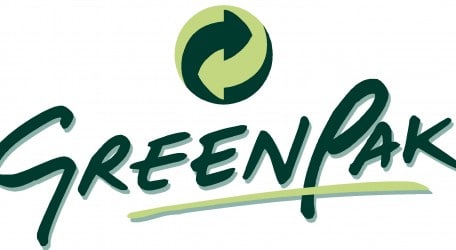
GreenPak supports eco-contributions’ removal
- Welcomes WEEE Compliance schemes
GreenPak Cooperative Society believes that the removal of eco-contributions is intrinsically linked to successful implementation of Waste Electrical & Electronic Equipment (WEEE) Compliance schemes. This was stated in its position paper submitted in response to the Consultation Brief on the Draft Waste Management (WEEE) Regulation 2015.
“In recent years the GreenPak Scheme has been an important and integral ingredient in the development of recycling post-consumer packaging. GreenPak is committed to repeat the same successful achievement in the case of WEEE. The Extended Producer Responsibility model, as promoted by GreenPak, is the key driver behind recycling by the business community,” said Ing Mario Schembri, GreenPak Cooperative Society CEO.
In order to counter the mushrooming of opportunistic – if not even rogue – operators abusing the proposed system, GreenPak is advocating that relevant legislation is setup requiring the compliance schemes to be wholly owned by obliged companies, to operate in a transparent manner, be financially structured on a not-for-profit basis, and act as a public service provider at core. Obliged companies are those commercial organisations involved in the sale of electric and electronic equipment ranging from hairdryers and refrigerators to mobile phones and computers.
GreenPak agrees that financial guarantees should be in place across the board, whether for self-complying companies or for schemes as while such guarantees are in the interest of all law-abiding companies, they bring about structural resilience in combating possible fraudsters.
At the same time, GreenPak believes that capping the guarantee at €50,000 in the case of self-compliance whilst no ceiling is set on the guarantee in the case of authorised schemes, creates an un-even playing field. A scheme has much higher operational costs as it is obliged to collect mixed WEEE materials from households, something which no self-complying company will do. It is also not possible for a scheme to ‘cherry pick’ lucrative waste streams as is normal practise with ‘self-complying’ companies seeking pure commercial gain. A basic and determining fact is that a scheme provides services to the public, while a self-compliant company does not.
Cost modelling prepared by GreenPak shows that if companies whose annual fees would exceed €50,000 are enticed away from joining a scheme, the resulting costs for running a scheme would have to be shared by fewer and smaller sized companies. Such a situation will result in higher costs that would inevitably be transferred to the consumers in the form of higher selling prices of electronic products, in a sector that is already hard pressed with online shopping and parallel imports.
“As a Cooperative Society, GreenPak works for the common good and not in the interest of minorities or single opportunistic individuals seeking to make commercial gain at the expense of others. GreenPak’s position on this matter is therefore the result of its inherent transparent governance and reflects its ethos for the common good, underpinned by its Cooperative Society structure,” he added.
While acknowledging that once the eco-contributions system is dismantled the Government may be exposed to loss of annual income and the risk that WEEE targets may not be achieved, GreenPak welcomes the removal of tax on electrical products as this is a step in the right direction: it will lead to obliged-industry taking up the recycling of WEEE.
Further information from Greenpak website www.greenpak.com.mt, or tel: 2166 1081 or email: info@greenpak.com.mt
- May 13, 2015 No comments Posted in: Press Launches





